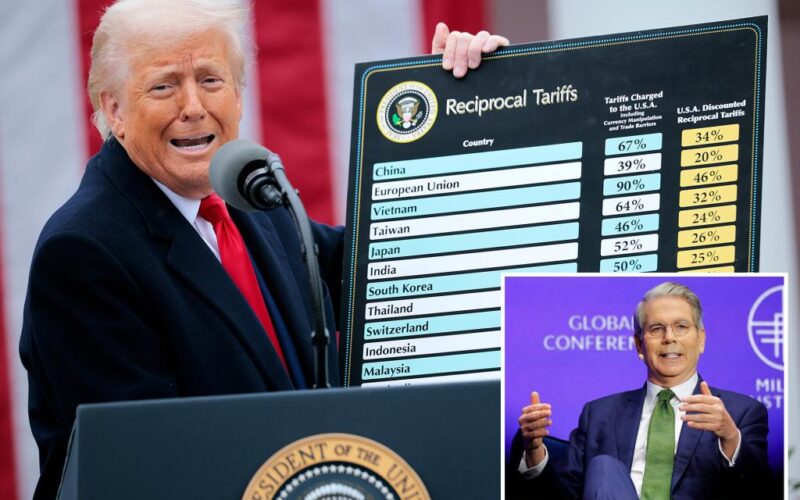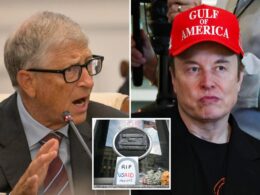Trade talks between the US and the European Union have failed to get off the ground — and a key sticking point is the massive fines the bloc continues to impose on American tech giants, The Post has learned.
Speaking on the sidelines at the Milken Institute Global Conference in Los Angeles, Trump administration officials told The Post that talks with Brussels have been stalled because the EU is refusing to back down on the White House’s demand to scrap the gargantuan levies.
As a result, negotiators from both sides are still hunkered down in Washington DC, thrashing out the preliminary “parameters” of what subjects will be on the table for discussion, sources briefed on the matter told The Post.
Late last month, Apple and Meta were slapped with fines totaling $800 million for violating the European Union’s new competition law that aims to curb the power of Big Tech.
As exclusively reported by The Post, the penalties were kept relatively modest versus previous fines in what may have been a bid to minimize trade tensions with the Trump administration. Nevertheless, sources said Trump officials want them reversed altogether.
Treasury Secretary Scott Bessent used a brief address at an exclusive gathering at the Milken conference earlier this week to lash out at the 27-nation bloc’s protectionist stance, accusing them of shaking down US corporations.
“The thing that we have discovered doing this is that Europe uses fines, mostly on US internet companies, as a kind of tariff,” the 63-year-old hedge fund mogul told a reception organized by DC consultancy Tactic Global.
Anders Visitien, a Danish lawmaker in the European Parliament, backed Bessent, slamming the fines as “a blatant EU attempt at a cash grab.”
One senior EU diplomat told The Post of their “frustration” over the deadlock, insisting that the heavy levies on tech titans that irked President Trump are here to stay.
“In spite of the fact that we’ve made this point repeatedly, it doesn’t seem to have fully landed with the United States,” the diplomat said.
“We are not going to move on digital or food and health standards. We don’t consider those to be up for negotiation.”
But one source close to Treasury Secretary Bessent warned the EU not to overplay its hand and that Trump was willing to walk away without a deal.
“This administration literally has zero f—s to give about Europe,” the source said.
Spokespeople for the US Treasury and US Trade Representative Jamieson Greer did not respond to The Post’s request to comment.
A Post analysis of open-source EU data shows that the European Commission, the EU executive that negotiates trade policy on behalf of its 27 members, has imposed just over $20 billion in fines on major US tech firms.
The largest-ever EU tech fine was a $4.5 billion penalty against Google in 2018 after regulators accused the firm of abusing its dominant market position to squeeze out search engine rivals.
Official data shows that the US imported $605.8 billion worth of goods from the EU, while exporting $370.2 billion.
It leaves a trade deficit of $235.6 billion, a 12.9% increase from 2023, and means more money is leaving the country to pay for EU imports than is coming in from exports.
Officials at the European Commission draft the laws of the bloc’s so-called single market that allows goods, services, money, and people to move freely across its borders as if it were one country.
But they have been reluctant in the past to carve out generous exceptions for nations that sit outside the club.
The US currently applies a 10% baseline tariff on nearly all EU goods, down from an initial 20% “reciprocal” tariff announced by Trump in the Rose Garden on his so-called ‘Liberation Day’.
There are also separate 25% tariffs that target EU steel, aluminum, cars, and car parts, but Brussels has not yet retaliated.
It comes as the European Commission drew up a fresh blueprint earlier this week for a string of “punishment” tariffs on American goods if no deal is struck.
The duties on US cars, food products, and parts made by aerospace giant Boeing will snap into effect if talks fail before the 90-day trade ceasefire called by the White House comes to an end in July.
The rates have not yet been disclosed, but they will target trade worth just over $110 billion.








